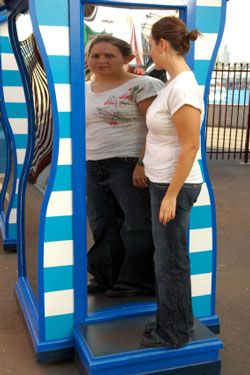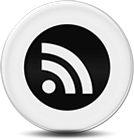Plan For Success: Best Diet Plan
What is the vital first step to real weight loss?

Imagine you were going to take a trip. Pick a place. Biarritz. The Maldives. Sioux Falls. Wherever you might want to go, you'll be lost if you don't know where you are starting from.
With weight loss the same holds true. The difference between success and failure? It may be just knowing where you are starting from.
More specifically, you'll want to answer two basic questions for yourself:
- Where am I now?
- How did I get here?
Ignore this and you'll always have problems. Do it and you can succeed. It's that important.
The step is simple. Just get this sorted out for yourself in a very clear way: "Where am I right now?"
Are you willing to look?
As a doctor I take care of a lot of patients. And the majority of the patients I see are overweight. With the excess weight comes health problems:- Trouble breathing.
- Diabetes.
- High blood pressure.
- High cholesterol.
But it goes beyond that. Their clothes don't fit. They don't like the way they look.
Guess what? Most of them cannot face the first thing about their weight. It is just too much for them to think about.
It's tough. I've been overweight too. I was the fat kid in school and I was teased. You've heard the kids say it:
Can't get through the bathroom door.
Well, that was me. The fat kid. And it's not easy.
It's not easy being fat, and it's not easy losing weight. And it's not easy facing all the factors that go into making you overweight.
BUT...
...there is a flip side to how hard it is, and that is this:
- You CAN lose weight, even if you tried before and failed.
- Life will be easier in many ways when you do.
- You'll be happier with yourself and with the way you look.
- It's certainly worth the effort because the benefits far outweigh the costs.
How to start...
First, you need to answer a few questions, which are labeled Steps #1-5 a little lower on this page. This is to help you sort out where you are now and get a real clear view of it. It helps you face things more clearly and to make decisions that will actually get you the results that you want.
In a lot of ways it is like doing a budget. Working out a budget is something that most people never do. Even when money is scarce and the bills are piling up, they just don't do it. But when they actually do it -- and even if the total of the bills is worse than they had ever imagined -- they still feel a great sense of relief to finally know exactly where they are.
The same is true for weight loss. You need to do a sort of personal assessment. And even if you find out you are more overweight than you had been imagining, even if you have more body fat than you thought, even if you break down your diet and find it is just full of sugar and empty calories, you'll still feel better just by knowing.
So when you do this, write down the answers. The more accurate you are the better.
Use a notebook. A simple spiral notebook costs a dollar or two. Record where you start and then record your progress.
The notebook costs $2.00, but it's a $1,000,00 tip. And here are more healthy weight loss tips for you.
Step #1: What do you weigh?
Obvious place to start, no? But lots of people won't get on a scale. Are you one of them? Then it's time to get over it.Always use the same scale. Scales vary a lot and many always weigh a bit high or low. But usually they are consistent enough that you can use them for the trend up or down, and that is what is really important.
Are you over 300 pounds? Over 150 kg? You might need a special scale. Buy one. You need one and it is worth the money.
Step #2: How much body fat?
There are lots of ways to measure body fat. The most common way is with a skin fold caliper.
You can get this measured professionally at the gym or at a doctor's office that specializes in obesity.
Or you can get the Accumeasure device (you can buy them online) and measure your own body fat percentage in private. It works remarkably well for an inexpensive device. And you don't need this measurement down to the fraction of a gram. You just need to know if your body is 25% fat, 40% fat, 55% fat or more.
Step #3: What do you eat?
This means exactly what it says. Not a vague generality. It's not: "I don't eat too much."
It's this: What exactly do you eat, meal by meal, item by item? Now, before you get too horrified by this, try to get yourself over your initial emotional reaction to doing this. If you hear yourself saying, "I just don't like to count calories. I just don't want to have to weigh my food," then it is time for you to make a decision.
There are many more difficult things in life than looking on the label of the egg carton and writing down "Egg, 70 calories, 3.5 grams protein." And there are more difficult things in life than getting a calculator out and adding up half a dozen numbers.
We're not talking about hundreds of hours of work here. We're talking about a few minutes a couple of times daily. And you don't need to do it for the rest of your life. Once you understand some of the basics and have a fairly stabilized diet that works for you, you won't need to keep track. But until then you do if you want to be successful.
I can guarantee that if you do this it will be an eye opener.
If you can't face this step -- if you can't spare the few minutes this takes -- then you are never going to lose the extra pounds and look the way you want to look and feel the way you want to feel. But if you do it, you can look the way you want to look. It's that simple.
Step #4: Are you disciplined?
Write down your answer in your notebook.
This means: Can you make a plan and follow it? Will you do the things that you know will be in your best interest? How much control do you have over your actions?
Nobody is perfect. And you don't have to be perfect. Actually, like most things in life, just adequate is probably good enough to get you to where you want to go. But you do need to know your strengths and weaknesses.
- Highly disciplined? Great.
- Fairly well disciplined? Good.
- Some discipline sometimes? All right.
- No discipline at all, no way, no time, no how? Well, if that's what it is, then that's what it is. Write it down.
If you just write down the answer to this one question then you have more self-discipline and more control over your own actions than most people. Congratulate yourself.
Try not to overdo it
Look at what you wrote down in this previous step. If you are very highly disciplined and can set a plan for yourself and follow that plan well into the future without fail, then you are quite fortunate. However, if that is not you, if you have some trouble sticking to a plan, then here is what you should do:
- Make your goals a little smaller.
- Break things down into doable steps.
- Don't set sky-high goals you'll never reach.
- Don't give yourself another loss.
What would be a big change for you? What about your diet? Can you face new foods easily? Then add some lean protein or some extra fiber to your diet.
Does it give you fits to think of leaving mayonnaise off your triple cheeseburger? Then just plan around that.
Step #5: Trouble with self-control?
This is a close cousin to discipline, just sort of the flip side. With discipline you need to know if you can get yourself to do things. This is the active part of the equation. Can you get yourself out of bed on time? Can you tell yourself that you are going to have cottage cheese for lunch and then actually have cottage cheese for lunch?
In this case when we mean self-control we're talking about things that get out of your control. You meant to have a cookie and you ate the whole bag. You stop on the way home at McDonald's for French fries, then a shake at Burger King, a Snickers at the 7-11, and then buy a gallon of ice cream at WalMart for a snack.
But it doesn't need to be this extreme. It's whatever ties up your attention. Whatever you are doing that you feel like you shouldn't be doing, but you do it anyway.
Where are you on the scale?
- Great self-control, never falter? Excellent.
- Fairly good self-control, seldom any difficult? Great.
- Some trouble with self control, seems to be a problem? All right.
- Enormous difficulty with self-control? Well, even this can be managed. For now, just make a note of it.
The result? A clear picture of where you are starting
When you've answered these questions you know this much clearly:- What you weigh.
- How much is fat.
- What you eat.
- Your ability to do what needs to be done.
- Your level of self-control.
You've got to start somewhere.
And once you have the answers to these questions you'll know where that "somewhere" is. This is important. How can you know where you are heading if you don't know where you are now?
This is a big step and it is one that is often overlooked or not done completely enough to be useful.
Face things as they are -- not as you might imagine things to be.
Your next step? Set your weight loss goals.
And when you are ready to lose weight for good? Then get your copy of Dr. Dan's Super Weight Loss Plan.
It's the one reference you need to get the body you've always wanted. You'll be glad you did.
Popular articles:
With weight loss, knowledge is power...
If you know these few truths on this page -- and if you apply them consistently in your life...
If you can't stay on it forever and be fit and healthy and strong -- then it's an extreme diet.
Here's the easy way to ruin any slightest chance you have of losing weight...
Can you eat in restaurants and still respect yourself in the morning?
Calorie density is the difference between vegetable soup and a bagel.
Hidden calories that ruin your waistline...
Will it really help to drink water to lose weight?


